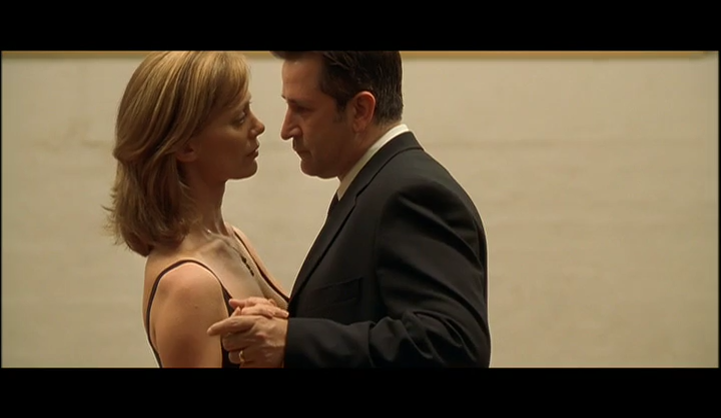Ray Lawrence’s Lantana felt like an anomaly in the year it came out. Here was an era where Australian films attempted to emulate The Castle and Chopper in various ways – there was a heavy lean towards the broad-scope comedy and the Aussie gangster flicks with films like The Nugget and Getting Square. Yet, along came Ray Lawrence after a sixteen year break after making his 1985 film Bliss, strolling back into the landscape of Australian cinema as if he had never left, bringing an adaptation of Andrew Bovell’s stage play Speaking in Tongues.
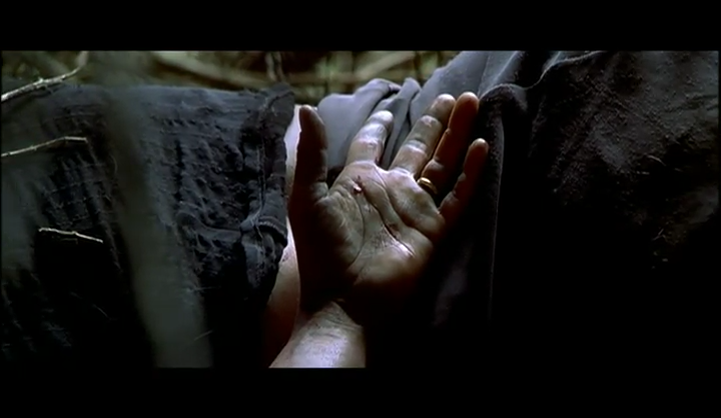
Filmed and set in Sydney, Lantana is the epitome of an ‘Australian’ film – everything about it echoes the sounds and surroundings of Australia. It showcases a majority Australian multicultural cast. It focuses on families, on relationships, on love and the way we manage our emotions. From the natural insect noises, to the rolling green of the trees in the suburbs – Lantana shows a side of Australia that is rarely seen. Usually the tourist landmarks like the Sydney Opera House, or the sandy dustbowl that is the Australian desert make up the scenery within an Australian film. Here, we see the Australian household with all its purity.
When you compare the other Australian films coming out in 2001, Lantana sits alongside some very fine purely-Australian films – The Dish and The Bank for example. Sure, on the other side of Sydney-town at Fox Studios, Baz Luhrmann was directing Moulin Rouge!, on a can-can trail to show audiences around the world that not all Australian films need to scream ‘we’re Australian’ to truly be an Australian film. What makes Lantana such a great achievement of Australian cinema is that Ray Lawrence simply set out to tell a story about people; not a story about a country, or a town, or anything distinctly Australian – simply a story about people co-existing in a busy world.
So what was it about Andrew Bovell’s story that enraptured Ray Lawrence to return to the world of filmmaking after sixteen years? Lawrence was working towards returning to cinema with a different properties in mind. An adaptation of Robin Davis’ story, Tracks, lingered in development for four years until Lawrence was told ‘Who wants to watch a young woman find herself in the desert?‘ thus cancelling the project. (Tracks later surfaced in 2013, directed by John Curran and starring Mia Wasikowska.) Subsequently, Lawrence spent another four years attempting to adapt Tim Winton’s novel The Riders. Producer Jan Chapman then showed Lawrence a performance of Speaking in Tongues. With years spent on failed projects, it was with Lantana that Lawrence knew this was the story he wanted to tell with his return to cinema.
Bovell’s stage play is an interesting and unique tale of overlapping relationships and stories. Often characters will share lines of dialogue, talking in unison to a partner or a one night stand – immediately giving that line of dialogue a dual meaning. The way Bovell spins his characters dialogue creates confusion and wariness about people – as an audience member, you’re never entirely sure where to look, or even who to listen to. Which character is speaking the truth or simply saying what they want the other character to hear? Lantana is that core story, but elevated to a grander scale. The stage-bound elements still remain evident, even though the dual character dialogue is no longer in place. Bovell adapted his stage play for the screen, and due to this there is still the odd ‘stagey’ line of dialogue that feels unnatural, but not so much that the film falters due to their inclusion. There is a relatable realism to the way Lawrence presents this tale – through well written characters and their believable actions, the audience is able to relate on a much stronger level than if one element of the film was not working.
Many reviewers have compared Lantana to one of the great damning pieces of suburban-Americana – David Lynch’s Blue Velvet. While both films open similarly – Blue Velvet with its camera pan from the depths of the ground, to reveal a finger laying in the grass – Blue Velvet playing over the soundtrack; Lantana with its Paul Kelly score searing across the audio like the steam rising from the boiling pavement in summer, the camera manoeuvring through the tangled weed that is the lantana bush to reveal the foot of a deceased woman (later, of course, revealed to be Valerie). Yet, unlike Blue Velvet, Lantana doesn’t delve into the bizarre, hyper-real mania that Lynch displays. No, Lawrence is delivering suburban living straight.
Well, as straight as possible. After all, Lawrence does cut from the image of Valerie’s bloody, cut up foot, to Leon (Anthony LaPaglia) and Jane (Rachel Blake) having sex. Awkward, realistic sex – head hitting the bedhead, clumsy; this is ‘get the deed done’ sex, rather than passionate, intense, ‘care about your lovers needs’ sex. It’s a stark comparison to the death and nature we’re introduced to, yet one that shows how close sex and death can be. Of course, Jane is not Leon’s partner, and this is an affair we are witnessing. Affairs, flings, flirtations, and dalliances away from one’s core relationships are like weeds, creeping into every facet of their life, gripping itself on their day to day occurrences, making it hard for one to go about the way they normally live. Leon’s heart pains after having sex with Jane could be a trite, on the nose analogy in lesser hands, but with LaPaglia and Lawrence, the reality of the situation is realised wonderfully.
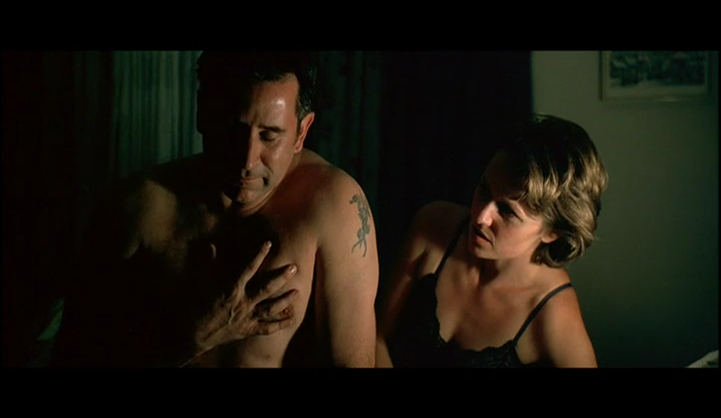
Leon Zat: [Leon has chest pains after having sex with Jane] I get this pain in my chest sometimes.
Jane O’May: You know, you really should have told me that you have a weak heart.
Leon Zat: I don’t.
Jane O’May: It’s because I don’t want to have an affair with…
Leon Zat: For Christ’s sake, I don’t have a weak heart, all right? This is not an affair, it’s a one-night stand that happened twice.
While Lantana doesn’t have a ‘lead character’ per-say, Leon is the clear through line for the story with most, if not all, characters coming into contact with Leon in some shape or form. Lawrence chooses to open and close the film on Leon – at the beginning he is separate from his wife Sonja (Kerry Armstrong). Contrasted, at the end, embraced in a slow tango, husband and wife dance across the screen with the sounds of Te Busco by Celia Cruz playing the film out. It’s interesting that Armstrong’s initial reaction was one of concern when auditioning and subsequently being cast as Sonja. Why would someone like Sonja fall for an Italian man like Leon?, she asked. The two appear so far apart in their similarities that it could feel out of place, bizarre – would it even be possible for a relationship like Sonja and Leon’s to be realistic if Armstrong and LaPaglia were to play the roles? Yes, of course, acting goes a long way to creating believable performances, but one thing which is difficult to portray as actors is a relationship that has spanned many years and two children.
However, the combined talent of Lawrence, Bovell, and most importantly, Armstrong and LaPaglia help provide that unspoken history to Leon and Sonja. You immediately gather who they are as a couple without ever having to spell out how they met, what their first date was like, what song was playing when they first kissed. There is inherent history here, one that helps inform some of Leon’s more radical actions as the film progresses. His frustration with his marriage, with himself and his inability to confront his own emotions sees him lashing out at suspects, accessing his wife’s therapy sessions, and accusing others of being unfaithful, or not present, within their own marriage.
Lawrence’s understanding of the strains of marriage are superbly realised with some of the behind the scenes discussions that took place in regards to how moments played out. For example, in one scene, Armstrong was going to lean in to kiss LaPaglia in a sign of affection, as in ‘normal’ situations that is what characters are expected to do. But, given that the narrative thrust of Lantana is designed to show what real people do in ‘normal’ situations, the change of this scene to being one where instead Sonja just touches Leon on the shoulder turns it into a much more impactful scene.
Leon’s hypocritical actions amazingly never take the sympathetic, human nature element out of him. Yes, his actions are not those that we may agree with, yet he is never made into a villain, or turned into a character who’s downfall is one we take joy in. As with all of the characters in Lantana, we want the best for them in their arcs as we see a part of ourselves within them. The low-key, humanistic elements of the story play to the strengths of the actors. This is not a bombastic film with plate-smashing arguments or ultra-serious police investigations – this is the embodiment of suburban life.
Lantana is initially interested in exploring the mindset of the various forms of the Australian male, with a further exploration into the partners of these men. Of course, there is Leon, the police officer and his multitude of self inflicted issues. Alongside Leon is a wonderful array of masculinity in its various forms, starting with Geoffrey Rush’s John Knox. Here is a man who is grappling with the grief over the loss of his daughter, all the while his wife Valerie (Barbara Hershey) grieves in a very different, public manner. While Lantana is not an expose on the different aspects of grief, it does touch briefly on how people display grief in different ways. Valerie’s processing of grief shows her writing a book about the loss of her daughter, that with its release – alongside her daughter’s death – takes a toll on her marriage, leading to a breakdown in communication within her marriage.
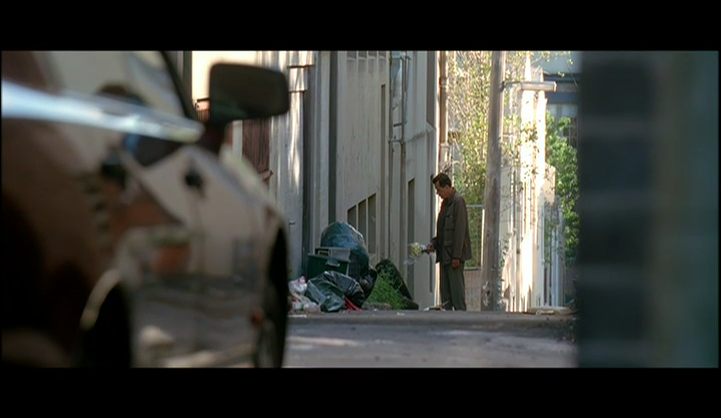
Rush is expectedly great as John. His face wears a year of pain and suffering, the look of a man trying to locate where it is he is supposed to exactly be within the life he is living. When Valerie goes missing, the weight of even more suffering is added to the pile of grief in his mind. John slowly becomes a man who is losing control of his life, although Rush never plays him as a man losing his mind. He is simply a man who is conscious of the life he is vacantly moving through, yet is being tried and tested by the continually rising toll of his existence.
The distance that John inadvertently puts in his marriage through his processing of grief causes Valerie to question other aspects of their relationship. Is John being distant because he may be having an affair, or is there something wrong with me? This causes her to lash out at one of her therapy clients – Patrick (Peter Phelps), projecting her fears and concerns onto him when he talks about being in a relationship with a married man. Patrick’s explanation of why he is in an affair with a married man is one of Lantana’s most interesting elements – the assessment of either side of a relationship. Often in films, affairs are explored, or discussed, from the female perspective, with the married man being the one simply seeking out an affair to fulfil carnal desires. Here, Patrick is the stick in the wheel of the marriage, the Jane to Leon’s encumbered man. This exploration of similar characters – Jane and Patrick – never comes off as being desperate, or on the nose; it feels natural, as if it’s a clear representation of what every day people go through in their lives.
Through Patrick’s therapy sessions, we get a look at what could be early 2000’s societies’ perceived notion that gay men are more in touch with their emotions than straight men are. Patrick is open about his relationship in ways that other characters are not. He is able to clearly articulate what he wants from the relationship, and how he perceives the relationship to be. In comparison, it is only after consuming alcohol that Leon and John are able to be open about their relationships – even though this discussion still keeps each other at arm’s length. Curiously, in a different scene where Leon’s sons are going to school, and one of them does not give him a kiss goodbye, Leon questions at what point in a boys life does he stop kissing his Dad. Or rather, at what point in a boy’s life does he stop displaying frank emotions like kissing or crying, and becomes ‘a man’ – namely, a person who bottles up their emotions, taking away their own ability to display what they are truly feeling?
Of course, the one emotion that Leon has no issue with displaying is anger. After going for a jog, Leon violently collides with another jogger. With a bloody nose, he berates the man over not watching where he was going. With his grocery shopping strewn over the road, the man starts crying. Leon doesn’t know how to deal with this, and with a look of confusion, embraces him. Upon arriving home, it is Sonja that receives the brunt of the anger, as if she was to blame for him being reckless. Fortunately, Leon never delves into extreme spousal abuse or domestic violence, but there is a feeling that if left unhindered, that is the path that Leon could stray down.
Finally from the male perspective, we have (on paper at least) the ‘ideal husband’ – Nik (Vince Colosimo). A stay at home dad, looking for work, he helps around the house and is genuinely attentive to his wife, Paula’s (Daniela Farinacci), needs. There is a shared love between the two, one that is only threatened when Nik assists Valerie with a ride home late at night on a dark road – a pure act of being a good samaritan. Through no distinct fault of Nik’s, other than taking a short cut and not explaining what he is doing, Valerie fears for her life and jumps out of the moving car, an action which brings her to her death. When Nik arrives home, he doesn’t tell Paula about what happened – instead, he hopes that nothing will come of it and it will be something best forgotten, throwing a shoe that Valerie left behind into a bush. However, due to a tip from neighbour Jane, the police arrive and take Nik off for questioning.
Here, one of the many themes of Lantana is uncovered once again – the unspoken elements within a relationship can cause that relationship to break down and falter. Whether it be as explicit as being dissatisfied with your relationship, and thus, cheating on your partner, or not talking about how you are processing the death of a loved one – Lantana proves to be a multifaceted look at the relationships we partake in our daily lives.
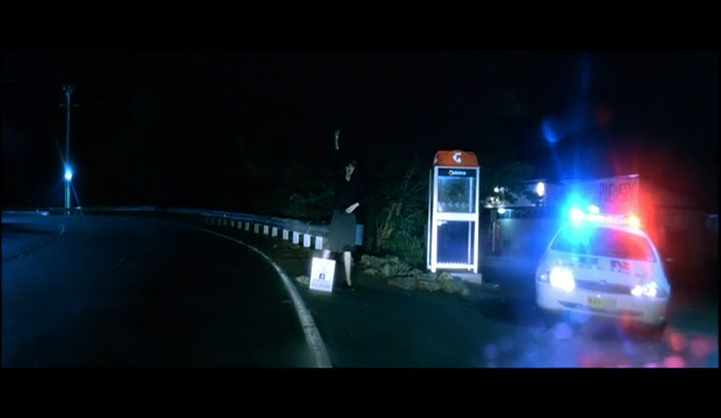
Understandably, in Nik’s case, the fear of explaining what has occurred to his wife takes over. After all, how do you explain that you picked up a stranger in your car when you are already running late? Shouldn’t honesty in a relationship preclude any awkward conversations from happening? Logically – if Paula is an understanding wife, Nik could explain this situation and Paula would be able to assist him through it? When she does later find out what happened with Valerie, she is immediately forgiving and understanding of Nik’s actions simply because of the unassuming nature of Nik’s personality. He is a man who is happy and comfortable in his marriage, a man who is not enticed by the separated woman living next door – yet, when an action is forced upon him, such as a stranger leaping out of his car at night, he becomes shocked and afraid. It is not an action that he would ever have imagined himself partaking in, and due to this, he doesn’t know how to react.
Andrew Bovell writes interesting male characters, but this is equally applicable to the female characters. Alongside LaPaglia’s Leon, Kerry Armstrong’s Sonja provides the backbone of the film. An immediately sympathetic character, simply because of her husband Leon’s actions, Armstrong portrays Sonja with equal amounts of strength and fragility. She displays attempted strength when she is around her family, struggling to contain her fears that her marriage is falling apart. She wants to appear strong not only for her two sons, but for herself. There is an understanding that if she leans into the fear that her marriage is failing, that it will consume her.
Within her therapy sessions with Valerie, Sonja talks about the awareness of Leon’s infidelity and how she doesn’t fear the infidelity itself, but the fact that Leon may never talk about that infidelity. On some level, Sonja embraces the notion that she may become a divorcee in her middle age; accepting who she is as a human being and the path that her life has lead her down. She is learning to love the lines on her face and embracing who she is as an aging person. Yet, when Sonja tries to have an affair with the dance instructor, it goes wrong and she realises that she does not have that capability within her to enact on those perceived feelings. Sonja’s attempt to walk in Leon’s shoes and harm their marriage by seeking solace in another man’s arms failed because of her desire to make things work. Whether it be through attempts to get Leon interested in dancing, or socialising at night, or wishing that he would open up to her more often like she does with Valerie.
For Valerie, as a therapist, she is able to assist other people with their problems, but of course, is unable to solve her own marital issues. Yes, this aspect of the film does feel a little tropey – the therapist who can solve other peoples problems, but can’t solve the biggest problem of all, her own – but thanks to Barbara Hershey’s great performance, she is able to elevate the role above that basic trope level. Just like LaPaglia and Armstrong, both Hershey and Rush bring an aged, lived in feeling to their relationship, accentuated by the grief of their dead daughter. Valerie and John have been through dark moments together, and that has aged them as a couple.
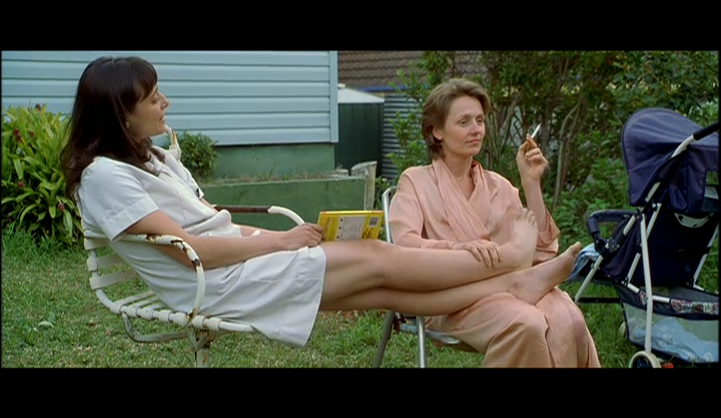
Then there is Jane, the separated but not divorced, ‘housewife’ who represents what possibly could have happened to Sonja if she had decided to act on her potential fling. Jane’s partner, Pete (Glenn Robbins), is possibly the least developed of the characters here, yet his presence does provide some clarity as to why Jane has wanted to stray from the ‘safety’ of her marriage. Pete is the everyman – there is nothing particularly wrong with him, but on the contrary, there is not much that is making Jane want to stay in the relationship and feel valued.
If anything, the casting of Glenn Robbins in this straight role is inspired. Australian audiences would be mostly familiar with Robbins as portraying comedic characters like Russell Coight – a take-off of Steve Irwin – or the various over the top comedic characters in Fast Forward. Seeing the usually over the top Robbins portray the straight character of Pete, adds the feeling that he is a man who has been deflated by the strains of separation in his marriage.
In separation, Jane inserts herself into other people’s lives as there is little within her own to maintain her interest. Although we don’t see how Jane and Leon met and started an affair, we can see that Jane has inserted herself into a stable marriage. Later, Jane sits awake at night and sees Nik arrive home after his dilemma with Valerie. She peers through the curtains as Nik throws Valerie’s shoe into the bushes. Here, Jane’s curiosity is deserved and her insertion into someone else’s life is understandable – a person is missing and Jane may have the information to help find her. Yet, Jane doesn’t understand that there is a line that she has crossed with Nik and Paula by informing the police of what she saw – so much so to the point that when Nik is being questioned, she decides to clean up their house, overstepping a line. It’s a well intentioned action, but one that is misguided. It is then interesting that due to Valerie’s tragedy, Jane and Pete are inadvertently brought back together as Jane seeks comfort and stability, rather than the unknown prospect of maintaining an affair with a married man.
What Lantana can be succinctly boiled down to is realised with one simple line of dialogue from John to Leon – ‘What holds your marriage together?’ In the supplementary features on the DVD, Anthony LaPaglia talks about how Lantana is a film about love. For many, the concept of love is a positive one, one that embraces unity and affection. Within Lantana, love is displayed as a haggard beast – worn down by years of marriage, deceit, and grief. Yet, like a stray dog who hasn’t had a bath in a decade, all shaggy and mangy, the love here still has a pure core to it, still containing the concept of unity and togetherness.
In 2002, Lantana won the Best Picture (Jan Chapman) at the AFI awards ceremony. It also won Best Director (Ray Lawrence), Script (Andrew Bovell), Lead Actor (Anthony LaPaglia), Lead Actress (Kerry Armstrong), Supporting Actor (Vince Colosimo), Supporting Actress (Rachel Blake). In comparison, there have only been a handful of films that have won the ‘big five’ (Best Picture, Director, Actor, Actress and Script) at the Academy Awards – It Happened One Night, One Flew Over the Cuckoo’s Nest, The Silence of the Lambs. It is my opinion that Lantana is a film that deserves to stand alongside those films as being one of the great films – or at the least, being one of the great Australian films.
Ray Lawrence quickly followed up Lantana with Jindabyne in 2006. Unfortunately, since then, there has not been another Ray Lawrence film released. Hopefully one day there will be another one to grace our screens. For now, seek out Bliss, Lantana and Jindabyne as fine examples of Australian cinema.
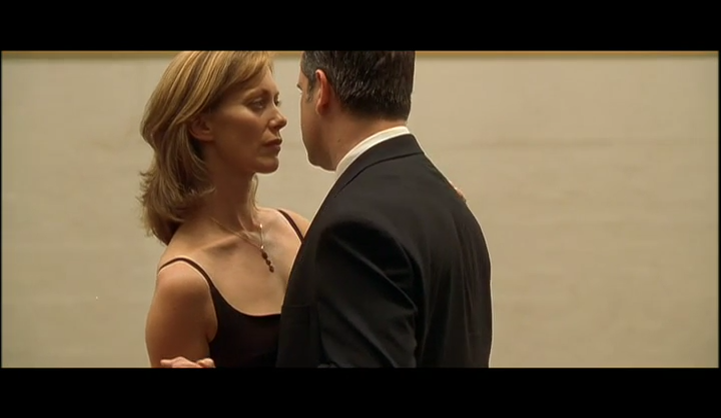
Director: Ray Lawrence
Cast: Anthony LaPaglia, Kerry Armstrong, Geoffrey Rush, Rachael Blake
Writer: Andrew Bovell

